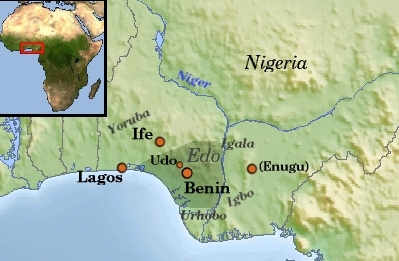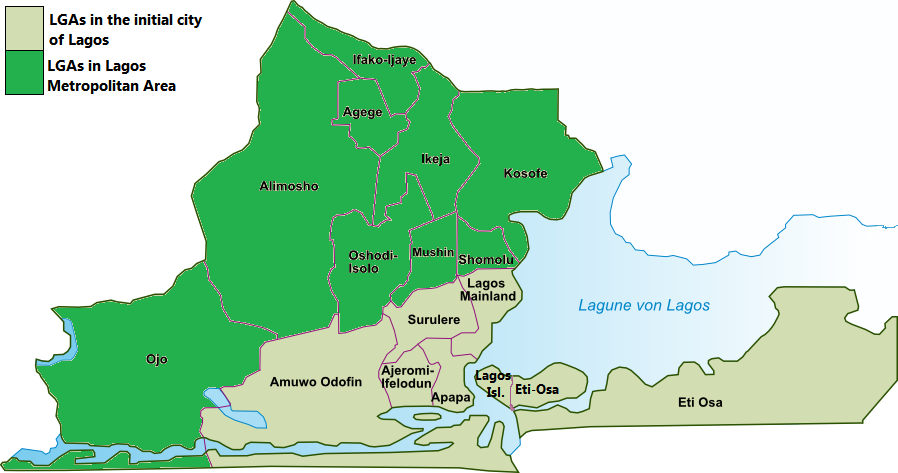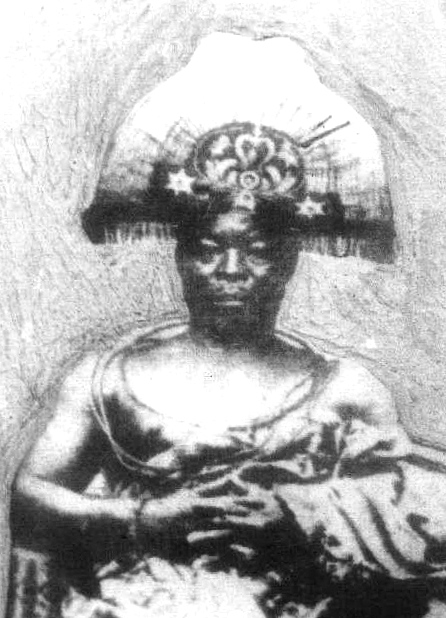|
Ado (Lagos Oba)
Oba Ado (original Bini name was Edo) who reigned from 1630-1669 was the second Oba of Lagos The Oba of Lagos, also known as the Eleko of Eko, is the Nigerian traditional rulers, traditional ruler (Oba (ruler), Oba) of Lagos. The Oba is a ceremonial Yoruba people, Yoruba sovereign with no political power, but is sought as a counsel .... He was son of Ashipa an Awori-Isheri Chieftain appointed as the first ruler of Eko by the Oba of Benin and a Daughter of the Oba of Benin. Ado's son, Gabaro was the third Oba of Lagos. Second Oba of Lagos Ado collected yearly tributes from his subjects which in turn were remitted to the Oba of Benin as tribute. References Obas of Lagos History of Lagos Yoruba monarchs 17th-century monarchs in Africa 17th-century Nigerian people 17th century in Lagos {{Africa-royal-stub ... [...More Info...] [...Related Items...] OR: [Wikipedia] [Google] [Baidu] |
Oba Of Lagos
The Oba of Lagos, also known as the Eleko of Eko, is the Nigerian traditional rulers, traditional ruler (Oba (ruler), Oba) of Lagos. The Oba is a ceremonial Yoruba people, Yoruba sovereign with no political power, but is sought as a counsel or sponsor by politicians who seek support from the residents of Lagos, the financial heart of Nigeria and the largest city in Africa. The Oba has appeared in tourism advertisements on behalf of the city, often stating "You've gotta go to Lagos", among various other ceremonial roles. The current Oba of Lagos is Rilwan Akiolu, who has held the title since 2003. History All Obas of Lagos trace their lineage to Ashipa - an Awori, a war captain of the Oba of Benin. Ashipa was rewarded with the title of the ''Oloriogun'' (''War leader'') and he received the Oba of Benin's sanction to govern Lagos on his behalf. Ashipa received a sword and royal drum as symbols of his authority from the Oba of Benin on his mission to Lagos. Additionally, the Ob ... [...More Info...] [...Related Items...] OR: [Wikipedia] [Google] [Baidu] |
Ashipa
Ashipa, the founder of the Lagos royal dynasty but uncrowned as Oba of Lagos The Oba of Lagos, also known as the Eleko of Eko, is the Nigerian traditional rulers, traditional ruler (Oba (ruler), Oba) of Lagos. The Oba is a ceremonial Yoruba people, Yoruba sovereign with no political power, but is sought as a counsel ..., whom all Obas of Lagos trace their lineage to, was an Awori Chieftain from Isheri. Ashipa was rewarded with title of Oloriogun (war chief) after returning the body of one Asheru, a Benin war captain to Benin and received the Oba of Benin's sanction to govern Lagos. Some Benin accounts of history have the Ashipa as son or grandson of the Oba of Benin. According to the Lagos traditional account however, Ashípa (Yoruba: Aṣípa) was a local native, an Awori Yoruba chieftain of Isheri. Ashipa received a sword and royal drum as symbols of authority from the Oba of Benin on his mission to Lagos. Additionally, the Oba of Benin deployed a group of Benin offi ... [...More Info...] [...Related Items...] OR: [Wikipedia] [Google] [Baidu] |
Gabaro
Oba Gabaro (original Bini name was Guobaro) who reigned from 1669–1704 was the third Oba of Lagos, son and heir to Oba Ado, and grandson of Ashipa. His siblings were Akinsemoyin, and Erelu Kuti. Oba of Lagos In collaboration with the descendants of Olofin, Gabaro moved the seat of government from Iddo Island to Lagos Island Lagos Island () is the principal and central Local government areas of Nigeria, Local Government Area (LGA) in Lagos, Nigeria. It was the capital of Lagos State until 1957. It is part of the Lagos Division. As of the preliminary 2006 Nigerian ce ... and established Iga Idunganran as the Oba's residence. Like his father, Ado, he collected yearly tributes from his subjects remitted to the Oba of Benin. Oba Gabaro established chieftaincy institutions and invested Olofin's descendants with chieftaincy titles, making them white cap chiefs while distinguishing Benin chiefs with silk hats. References Obas of Lagos History of Lagos Yoruba m ... [...More Info...] [...Related Items...] OR: [Wikipedia] [Google] [Baidu] |
Akinsemoyin
Oba Akinsemoyin reigned as Oba of Lagos from around 1704 to 1749. His father was Oba Ado and his siblings were Erelu Kuti and Oba Gabaro, whom he succeeded. According to the Justice J. O. Kassim tribunal of inquiry report of 19 September 1978, there are six recognised sons of Akinsemoyin, namely, Sadeko, Amore/Olukokun, Abisako, Jolasun, Gbosebi and Aina Egbe. The following are some of the prominent descendants of Akinsemoyin's daughters: Onisiwo, Oniru, Oluwa, and Akogun. Exile in Badagry under Oba Gabaro's reign and commercial activities Akinsemoyin had a disagreement with his brother, Oba Gabaro over installation of Olofin's descendants as chiefs, resulting in Akinsemoyin's banishment to Badagry. At Badagry, Akinsemoyin was exposed to commerce and built relationships with European slave traders. Ascendancy and introduction of slavery to Lagos When Gabaro died, Akinsemoyin became Oba around 1704 despite Gabaro having a son, Eletu Kekere or in some accounts Eletu Omo. Akins ... [...More Info...] [...Related Items...] OR: [Wikipedia] [Google] [Baidu] |
Erelu Kuti
The Erelu Kuti of Lagos is the traditional aristocrat charged with the bearing of the ritual essence of Oloye Erelu Kuti I, an eighteenth-century Yoruba royal who aided in the consolidation of her homeland. Erelu Kuti I was born the daughter of Lagos' paramount king, and was therefore the sister of his two immediate successors. Subsequently she became the consort of one of Lagos' chiefs, then thereafter a chief in her own right. She finally became Lagos' first queen mother. Her life was so entwined with the early history of her family's kingdom that her lineal descendants have gone on to serve as the ruling branch of its royal dynasty. A Series Of Excerpts From The Oral Records Of Lagos It is now believed by scholars of tribal history that due to Akinsemoyin's magnanimity, he did not see the need to perpetuate his branch of the dynasty by having one of his elder daughters serve as regent, pending when the eldest of his subsequent sons would come of age. As a sign ... [...More Info...] [...Related Items...] OR: [Wikipedia] [Google] [Baidu] |
Benin Empire
The Kingdom of Benin, also known as Great Benin, is a traditional kingdom in southern Nigeria. It has no historical relation to the modern republic of Benin, which was known as Dahomey from the 17th century until 1975. The Kingdom of Benin's capital was Edo, now known as Benin City in Edo State, Nigeria. The Benin Kingdom was one of the oldest and most developed State (polity), states in the coastal hinterland of West Africa. It grew out of the previous Edo people, Edo Kingdom of Igodomigodo around the 11th century AD; it was annexed by the British Empire in 1897, but endured as a non-sovereign monarchy. In the 15th and 16th centuries, the kingdom reached the height of its prosperity, expanding its territory, trading with European powers, and creating a remarkable artistic legacy in cast bronze, iron, brass, carved ivory, and other materials. History Early By the 1st century BC, the Benin territory was partially agricultural; and it became primarily agricultural by around A. ... [...More Info...] [...Related Items...] OR: [Wikipedia] [Google] [Baidu] |
Oba (ruler)
''Oba'' ('King' in the Yoruba language) is a pre-nominal honorific for kings in Yorubaland. Traditional rulers with dynasties of Yoruba origin, across the modern republics of Benin, Nigeria, and Togo, frequently make use of it. Examples of Kings that do this include Oba Ogunwusi of Ile-Ife, Oba Aladelusi of Akure and Oba Akiolu of Lagos and Oba Ewuare II of Benin. Although the Benin Kingdom is not located within Yorubaland, its Oba ruling dynasty traces its origin to Ile-Ife, the spiritual and historical center of the Yoruba culture. The title is distinct from that of ''Oloye'' in Yorubaland, which is itself used in like fashion by subordinate titleholders in the contemporary Yoruba chieftaincy system. Aristocratic titles among the Yoruba The Yoruba chieftaincy system can be divided into four separate ranks: royal chiefs, noble chiefs, religious chiefs and common chiefs. The royals are led by the obas, who sit at the apex of the hierarchy and serve as the fons honorum ... [...More Info...] [...Related Items...] OR: [Wikipedia] [Google] [Baidu] |
Bini People
The Edo people, also referred to as the Benin people, are an Edoid-speaking ethnic group. They are prominently native to seven southern local government areas of Edo State, Nigeria. They are speakers of the Edo language and are the descendants of the founders of the Benin Kingdom, Ogiso Igodo. They are closely related to other Edoid ethnic groups, such as the Esan, the Etsakọ, the Isoko and Urhobo as well as other southern ethnic groups. The names ''Benin'' and ''Bini'' are Portuguese corruptions, ultimately from the word ''Ubini'', which came into use during the reign of Oba (ruler) Ewuare, c. 1440. ''Ubini'' is an Edo word meaning 'livable', used by Pa Idu, the progenitor of the Edo state people, to describe the area found as a livable locale during their sojourn from lower Egypt. ''Ubini'' was later corrupted to ''Bini'' by the mixed ethnicities living together at the centre; and further corrupted to ''Benin'' around 1485, when the Portuguese began trade relation ... [...More Info...] [...Related Items...] OR: [Wikipedia] [Google] [Baidu] |
Awori Tribe
The Awori is a subgroup of the Yoruba people speaking a dialect of the Yoruba language. Geographic extent Traditionally, the Awori are found in Ogun State and Lagos State Lagos State (, ) is a States of Nigeria, state in South West, Nigeria. Of the 36 States of Nigeria, Nigerian states, Lagos is the second List of Nigerian states by population, most populous state but the List of Nigerian states by area, smallest ..., Nigeria. History In a 1935 Intelligence Report on the Badagry district anthropologist W.G. Wormalin said the Awori spoke a "slurred dialect" of Yoruba and mostly farmed and fished. References {{Authority control Yoruba subgroups History of Lagos ... [...More Info...] [...Related Items...] OR: [Wikipedia] [Google] [Baidu] |
Lagos
Lagos ( ; ), or Lagos City, is a large metropolitan city in southwestern Nigeria. With an upper population estimated above 21 million dwellers, it is the largest city in Nigeria, the most populous urban area on the African continent, and one of the fastest-growing megacity, megacities in the world. Lagos was the national capital of Nigeria until the Government of Nigeria, government's December 1991 decision to move their capital to Abuja, in the centre of the country. Lagos is a major African financial center, financial centre and is the economic hub of Lagos State and Nigeria at large. The city has a significant influence on commerce, entertainment, technology, education, politics, tourism, art, and fashion in Africa. Lagos is also among the top ten of the world's fastest-growing cities and Urban area, urban areas. In 2024, Time Out (magazine), Time Out magazine ranked Lagos as the 19th best city to visit in the world. A megacity, it has the second-highest Gross domestic pr ... [...More Info...] [...Related Items...] OR: [Wikipedia] [Google] [Baidu] |
Oba Of Benin
The Oba of Benin is the traditional ruler and the custodian of the culture of the Edo people and all Edoid people. The then Kingdom of Benin (not to be confused with the modern-day and unrelated Republic of Benin, which was then known as Dahomey) has continued to be mostly populated by the Edo (also known as Benin ethnic group). The dynasty is sometimes called the "Eweka dynasty", after its first ruler, Eweka I, and was preceded by the Ogiso monarchy. In 1897, a British military force of approximately 1,200 men under the command of Sir Harry Rawson mounted the Benin punitive Expedition. The force was dispatched in retaliation to the ambush of a British party, at Ugbine village near Gwato on 4 January 1897 by a group of Benin soldiers who were acting without orders from the Oba; the ambush had led to the deaths of all but two of the British party. The British force captured the capital of the Kingdom of Benin, sacking and burning the city while forcing the Oba of Benin, Ov ... [...More Info...] [...Related Items...] OR: [Wikipedia] [Google] [Baidu] |
Obas Of Lagos
Obas may refer to: People * Beethova Obas (born 1964), Haitian musician * Charles Obas, Haitian painter Places * Obas District, Peru See also * Optical brightening agent {{dab, surname ... [...More Info...] [...Related Items...] OR: [Wikipedia] [Google] [Baidu] |




